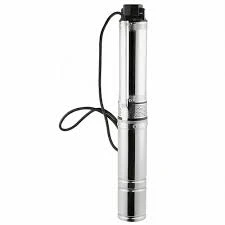Dec . 11, 2024 11:23 Back to list
immersion pump
Understanding Immersion Pumps Their Functionality and Applications
Immersion pumps, also known as submersible pumps, play a crucial role in various industries by facilitating the movement of liquids from one location to another. These pumps are designed to operate while fully submerged in the fluid they are pumping, which allows for a highly efficient transfer of liquids in a myriad of applications. From wastewater management to agricultural irrigation, immersion pumps are indispensable tools in modern engineering and maintenance.
How Immersion Pumps Work
The fundamental principle behind immersion pumps is relatively straightforward. They consist of an electric motor and a pumping mechanism housed within a sealed casing. This casing is designed to prevent any leakage and protect the motor from the surrounding fluid. When powered on, the motor activates the impeller (or other pumping mechanism), which draws liquid into the pump and expels it out through a discharge port. The entire unit operates underwater, which ensures that it is self-priming and can handle changes in fluid levels easily.
One of the significant advantages of immersion pumps is their ability to handle a variety of fluids, including water, oil, slurries, and even hazardous materials, depending on the design and materials used in construction. These pumps can be used in diverse conditions, from stagnant water bodies to active construction sites, showcasing their versatility.
Applications of Immersion Pumps
The applications of immersion pumps are extensive, and they are commonly employed across multiple sectors
1. Wastewater Treatment Immersion pumps are fundamental in wastewater management systems. They help in the transfer of sewage and stormwater to treatment facilities, ensuring that the waste is processed efficiently and effectively.
2. Agriculture Farmers use immersion pumps for irrigation purposes to draw water from wells and reservoirs. These pumps provide a reliable source of water for crops, helping to optimize agricultural productivity.
immersion pump

3. Industrial Processes In manufacturing plants, immersion pumps are used to circulate coolants and other fluids used in processing operations. They help maintain optimal temperatures and fluid levels, ensuring the smooth operation of machinery.
4. Firefighting Some emergency services use immersion pumps to quickly draw water from lakes or swimming pools for firefighting efforts. These pumps can rapidly supply a large volume of water, which is critical in emergency situations.
5. Groundwater Control In construction and mining, immersion pumps are employed for dewatering applications. They are vital for removing excess water from trenches, foundations, and excavation sites, preventing flooding and ensuring safety during operations.
Advantages of Immersion Pumps
The use of immersion pumps comes with several advantages. Their ability to operate underwater minimizes the risk of cavitation, allowing for more efficient fluid movement. Additionally, these pumps often require minimal maintenance since submersible designs protect components from exposure to the elements. Many immersion pumps are also equipped with features like float switches and variable speed controls, providing automation and reducing manual intervention.
Challenges and Considerations
Despite their numerous benefits, immersion pumps also pose some challenges. For instance, they require proper installation to avoid issues such as overheating or mechanical failure. Care must be taken when selecting a pump to ensure it is suitable for the specific liquid type, viscosity, and environmental conditions. Regular maintenance checks are essential to extend the life of the pump and ensure optimal performance.
Conclusion
In conclusion, immersion pumps serve as vital tools across a variety of industries, providing effective solutions for fluid transfer and management. Understanding their functionality, applications, and advantages can help industries better utilize these pumps for optimal efficiency. As technology continues to advance, immersion pumps will likely evolve, becoming even more versatile and efficient, thereby reinforcing their importance in modern operations.
-
Submersible Water Pump: The Efficient 'Power Pioneer' of the Underwater World
NewsJul.01,2025
-
Submersible Pond Pump: The Hidden Guardian of Water Landscape Ecology
NewsJul.01,2025
-
Stainless Well Pump: A Reliable and Durable Pumping Main Force
NewsJul.01,2025
-
Stainless Steel Submersible Pump: An Efficient and Versatile Tool for Underwater Operations
NewsJul.01,2025
-
Deep Well Submersible Pump: An Efficient 'Sucker' of Groundwater Sources
NewsJul.01,2025
-
Deep Water Well Pump: An Efficient 'Sucker' of Groundwater Sources
NewsJul.01,2025
-
 Submersible Water Pump: The Efficient 'Power Pioneer' of the Underwater WorldIn the field of hydraulic equipment, the Submersible Water Pump has become the core equipment for underwater operations and water resource transportation due to its unique design and excellent performance.Detail
Submersible Water Pump: The Efficient 'Power Pioneer' of the Underwater WorldIn the field of hydraulic equipment, the Submersible Water Pump has become the core equipment for underwater operations and water resource transportation due to its unique design and excellent performance.Detail -
 Submersible Pond Pump: The Hidden Guardian of Water Landscape EcologyIn courtyard landscapes, ecological ponds, and even small-scale water conservancy projects, there is a silent yet indispensable equipment - the Submersible Pond Pump.Detail
Submersible Pond Pump: The Hidden Guardian of Water Landscape EcologyIn courtyard landscapes, ecological ponds, and even small-scale water conservancy projects, there is a silent yet indispensable equipment - the Submersible Pond Pump.Detail -
 Stainless Well Pump: A Reliable and Durable Pumping Main ForceIn the field of water resource transportation, Stainless Well Pump has become the core equipment for various pumping scenarios with its excellent performance and reliable quality.Detail
Stainless Well Pump: A Reliable and Durable Pumping Main ForceIn the field of water resource transportation, Stainless Well Pump has become the core equipment for various pumping scenarios with its excellent performance and reliable quality.Detail
